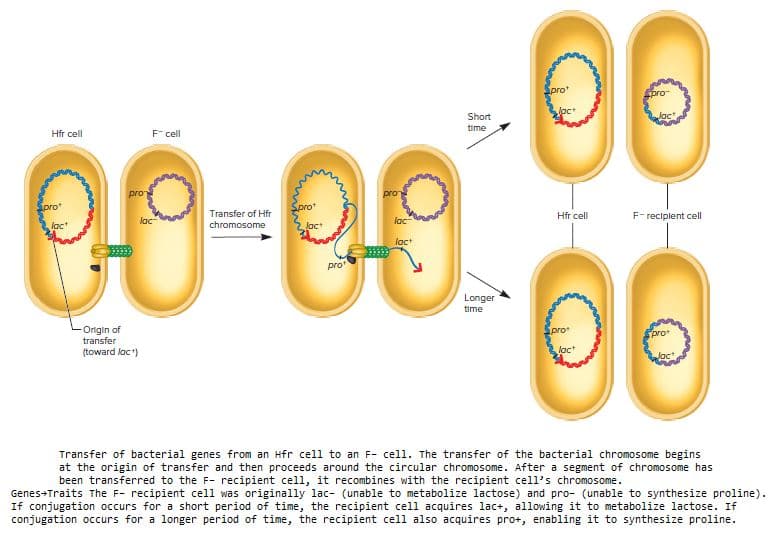Spro pro loct Short time 00-00. Hfr cell F cll pro pro pro Spro* Transfer of Hfr lac Hfr cell F- reciplent cell lac joc chromosome lac lact pro Longer time -Origin of transfer (toward lac) pro Tpro loct Jact Transfer of bacterial genes from an Hfr cell to an F- cell. The transfer of the bacterial chromosome begins at the origin of transfer and then proceeds around the circular chromosome. After a segment of chromosome has been transferred to the F- recipient cell, it recombines with the recipient cell's chromosome. Genes+Traits The F- recipient cell was originally lac- (unable to metabolize lactose) and pro- (unable to synthesize proline). If conjugation occurs for a short period of time, the recipient cell acquires lac+, allowing it to metabolize lactose. If conjugation occurs for a longer period of time, the recipient cell also acquires pro+, enabling it to synthesize proline.
Genetic Recombination
Recombination is crucial to this process because it allows genes to be reassorted into diverse combinations. Genetic recombination is the process of combining genetic components from two different origins into a single unit. In prokaryotes, genetic recombination takes place by the unilateral transfer of deoxyribonucleic acid. It includes transduction, transformation, and conjugation. The genetic exchange occurring between homologous deoxyribonucleic acid sequences (DNA) from two different sources is termed general recombination. For this to happen, an identical sequence of the two recombining molecules is required. The process of genetic exchange which occurs in eukaryotes during sexual reproduction such as meiosis is an example of this type of genetic recombination.
Microbial Genetics
Genes are the functional units of heredity. They transfer characteristic information from parents to the offspring.
With regard to the timing of conjugation, explain why the recipient cell at the top right is pro−, whereas the recipient cell in the bottom right is pro+?

Trending now
This is a popular solution!
Step by step
Solved in 3 steps







